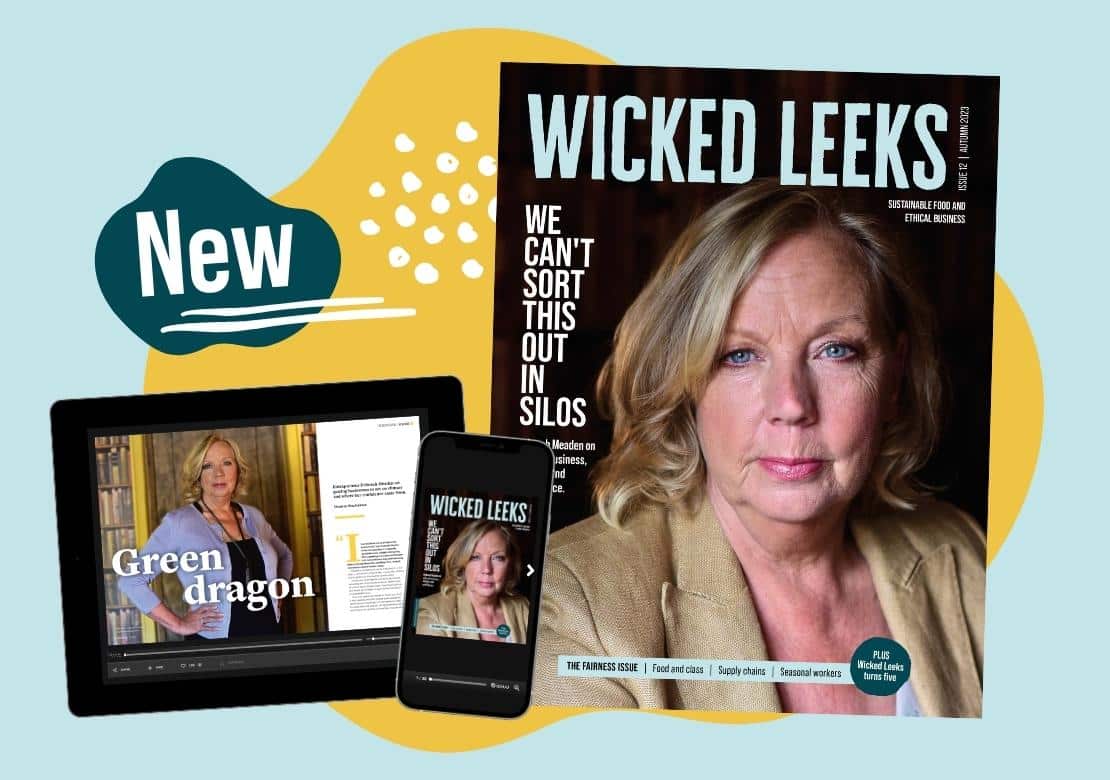Fairness (or the lack of it) can seem like an abstract concept, but this year it has turned into a hard reality for many farmers. Rising food prices on shelves aren’t getting back to farmers – and it’s causing many to give up, sell up, or intensify. It’s not just about price, either; short-term contracts, a lack of commitment, and, in some cases, bullying of farmers and suppliers have created a crisis for our future food security. Meanwhile, in the big picture, climate change and fragile geopolitics are obvious warnings that now, more than ever, we should be nurturing our UK food producers and farmers. So what can be done about it?
You might think a recent letter, signed by hundreds of MPs, asking supermarkets to help online shoppers identify and ‘Buy British’ could offer the answer. After all, so many of us want to buy British food – to support farmers, reduce food miles, and seek high quality and animal welfare standards. But as farmers pointed out, the letter’s proposal is so far from the solution needed that it felt like an extra kick in the teeth. It isn’t difficulty finding British food that’s harming farmers; it’s this government’s enthusiasm for new overseas trade deals, a slow (though moving in the right direction) approach to new agricultural subsidies and a lack of joined up thinking around food security, the environment and health. Combined with the supermarkets’ crippling focus on low prices and short-term deals, it has become all but impossible for farmers to do their jobs. This is the case in eggs, dairy, salad and most other sectors of farming today. At Wicked Leeks, we have been covering these stories all year, and pressure is finally building for genuine change.
Fairness, of course, affects much more than farming. What does ‘fair’ mean to those who pick our food? To those who sell it? Or to us all, eating it? It’s an intriguing question, and one we explore in the new issue of the print magazine, which is available to order now or read online. It also celebrates five years of the Wicked Leeks, and we’re delighted to publish our favourite reader nominations for their food and farming heroes, along with a special birthday cake recipe. It’s a reminder that, no matter the difficulties, there is a thriving community of people out there who are passionate about creating and supporting a fairer food system. Supermarkets and the government would do well to take heed.
Order your copy of Wicked Leeks via Riverford’s website now by clicking here, or read the digital edition online for free here.














Dear Wicked Leeks,
I understand the difficulties farmers are facing and sympathise. Especially given the quality of Riverford food is so much better than anything else you can buy.
Please may I point out your article is asking for what in political econony is called ‘protectionism’. It’s an age old political activity which appears to be a good thing for the protected industry – government stands in the way of free trade from the total market, to raise prices for the protected market. It has never once in history been a policy which has either succeeded in its aims nor been fair. Sure, it gets used frequently, I hear you.
What do you think is the net effect of of this?
It is to make prices in general higher for the consumer than they otherwise would be. In the end. What is more, the knock on effect is to make prices of everything else which relies on the protected industry that much higher. Which being food, is everyone! Finally, as always, it is the poorest class who pay the most for the protection, so additional welfare is then needed. Your field workers!
Politically, protectionism is a great way to win votes for a politician. But in the end, even the protected few end up paying more for the things their industry needs in the complete chain of a thousand exchanges inflated by the protectionism itself. So if you reach out to your MP for protection, please take great care. You will now be part of the problem you want to resolve.
Fair, means honesty during trade and exchange doesn’t it? Using a fear program in parts of your article to scare your customers into paying more for your goods, is dishonest. Telling people the world is going to burn at the same time is the lowest form of all. People need less fear, not more.
Please, for the sake of all people in our world and fairness, will you stop your current political approach and think about the real reasons farming is suffering so much? There is a very good answer, which takes courage to confess is true. I did meet with Mr Watson ten years ago to show him. I do not know how well he received it. I’m happy to help in that dialogue if you are truly serious about it.
Best regards,
Robin Smith.
The SFR Group (customer in North Stoke South Oxfordshire)